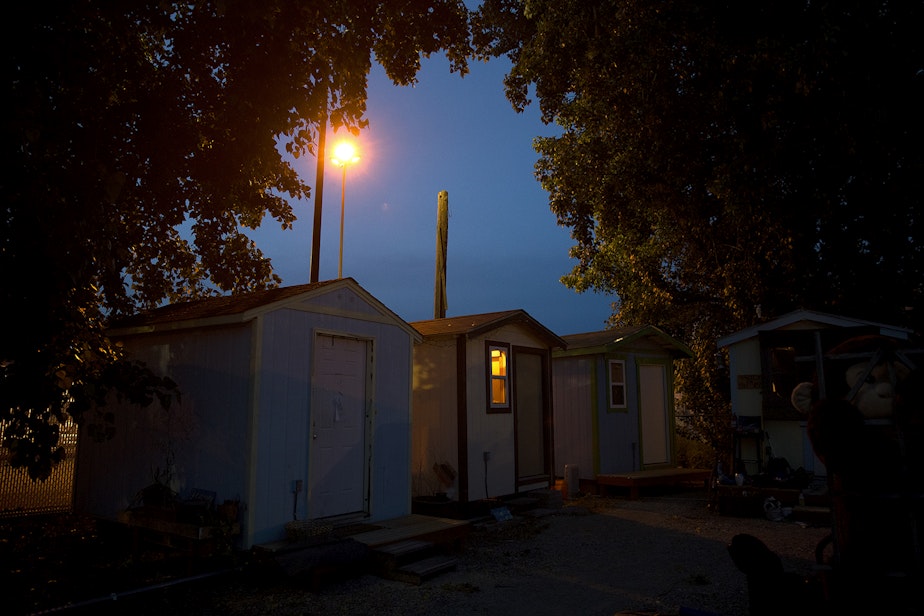Pandemic gives new legs to tiny house villages

The Covid-19 pandemic has pushed people out of homeless shelters and onto the street. Public frustration about that is leading to wider embrace of tiny house villages.
About five years ago, a consultant hired by the city of Seattle criticized tiny house villages. She said they’re no substitute for affordable housing.
But the coronavirus changed the calculation, because tiny houses protect people from the virus in ways that shelters can’t.
City councilmember Andrew Lewis wants to use private donations to fund construction of hundreds more tiny houses.
At a public meeting Wednesday, Ravenna resident Matt Elhardt criticized how long it’s taken. “Councilman Lewis’ 'It Takes A Village' campaign is great, but I can’t help but wonder why after five years it’s taken private philanthropy to get this done,” he said.
In the long term, the focus is still on permanent housing.
Sponsored
Lewis said he wants to remove the red tape that slows down the approval process, and increases the cost of building housing for people who would otherwise be homeless.
The faster process would benefit "permanent supportive housing," a type of housing that includes social services that help keep people from falling back into homelessness.
Most big buildings go through a lengthy "design review" process, where neighbors debate everything from the color of the bricks to whether the building's bulk shades the neighbors.
Under the proposed change, permanent supportive housing could skip that step. It would also get a pass on having to build bicycle parking for residents.

